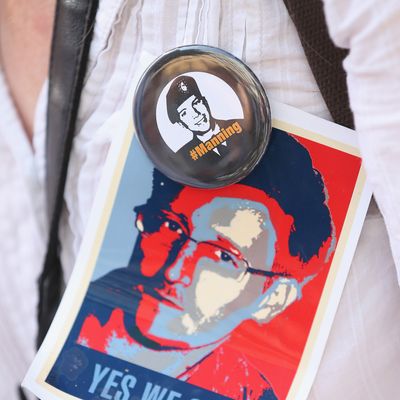
With the exception of that 60 Minutes puff piece, December has not been kind to the NSA. First major tech companies banded together to call for surveillance reforms, then a federal judge ruled that the NSA’s cell-phone metadata collection violates the Fourth Amendment, and on Wednesday the panel President Obama appointed in August to review surveillance operations issued a surprisingly critical report on the NSA. Among the panel’s 46 recommendations was a call to significantly rein in the first program exposed by Edward Snowden: the bulk collection of phone records. “The government should not be permitted to collect and store all mass, undigested, nonpublic personal information about individuals to enable future queries and data mining for foreign-intelligence purposes,” says the report.
The panel didn’t call for a ban on the search of phone records, but said the data should be stored by telecommunication companies, or perhaps in private consortium. The government would be required to obtain a court order for specific customer information when it wants to search the data.
The report calls for reform of the FISA court that makes those rulings, saying all Supreme Court justices – not just Chief Justice John Roberts – should have a say in selecting judges for the court, and backing the creation of a “public interest advocate to represent the interests of privacy and civil liberties” in classified rulings. Other proposals include allowing Internet companies to release “general information” about government orders to turn over data, and extending the protections that Americans have under the Privacy Act of 1974 to foreigners. Despite the long list of reforms, Michael Morell, the former deputy director of the CIA who was part of the five-person panel, said, “We are not in any way recommending the disarming of the intelligence community.”
The recommendations are not binding, and the president has already rejected the panel’s suggestion that the next NSA director should be a civilian, with the military’s Cyber Command getting its own leader. Obama has suggested that he won’t split the position, and intends to put another military official in charge of the NSA when General Keith Alexander retires in a few months.
A senior administration official told the New York Times that Obama is “open to many” of the changes, but he hasn’t decided which he’ll implement. The president is expected to study the recommendations during his vacation in Hawaii this week, and announce the changes he wants to see at the NSA in January.






























